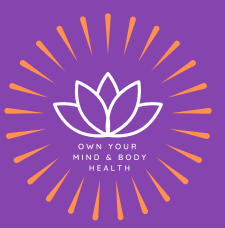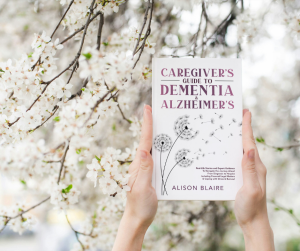
Let’s talk about something your doctor probably didn’t say loud enough, maybe whispered it in passing, or maybe didn’t say it at all.
Diet and lifestyle changes don’t just prevent chronic illness. In many cases, they can reverse it.
Yeah. Reverse.
And I know that sounds like the kind of thing you’d read in some flashy headline next to a cartoon avocado with abs. But I’m not here to sell you a fantasy. I’m here to tell you what we’ve been seeing over and over again in the research, in real life, and in the bodies and brains of real people who thought they were too far gone.
Heart disease? Reversible.
Type 2 diabetes and prediabetes? Reversible.
Weight gain, high blood pressure, prostate cancer, and even certain types of depression? Reversible.
And now, with the latest research rolling in like a tide that refuses to be ignored, we’re seeing strong evidence that early-stage Alzheimer’s can also be slowed—and sometimes even reversed—with the right changes in food, movement, and daily rhythm.
Read that again. Let it sit in your bones for a second. You are not helpless in the face of these conditions. You’re not trapped in a body that’s “just getting old.” There is power—literal, biological, brain-changing power—in what you eat and how you live.
And the best part is that that power doesn’t disappear when you hit 60, 70, or 80. In fact, for many of us, it starts then.

Your Grocery List Might Be Smarter Than Your Prescription List
If you’ve been told you need pills for the rest of your life and nothing more can be done, I’m going to be the annoying voice that says: “Actually… there’s more to the story.”
Doctors are wonderful. Meds can be life-saving. But so often, the way we manage chronic conditions forgets the role of food entirely. We manage the symptoms, not the cause.
And yet, what you eat is one of the biggest levers you can pull.
Studies show that plant-heavy, nutrient-dense, low-inflammatory diets can shrink arterial plaque, regulate blood sugar, improve memory, reduce anxiety, lift depression, and decrease cancer recurrence risk. That’s not woo-woo nonsense. That’s from Harvard, from the NIH, from long-term meta-analyses.
Let me make it plain:
A daily handful of blueberries can help preserve your memory.
Leafy greens support cognitive sharpness.
Omega-3s found in walnuts and flaxseeds support brain repair.
A little olive oil goes a long way, especially when it replaces butter.
Your brain doesn’t love sugar as much as your sweet tooth does.
I know change feels daunting. But sometimes it just starts with swapping cereal for oatmeal. Or trading soda for sparkling water. Or adding a little movement before lunch. Small hinges, big doors.
Don’t Worry, You’re Not Too Late. You’re Right on Time.
Here’s what I hear from seniors all the time:
“I should’ve done this 20 years ago.”
“I’ve already lived most of my life. What’s the point now?”
“It’s too late for me to fix anything.”
If you’ve thought those things, I want to gently invite you to stop that train of thought mid-track.
Because the truth is, your body is still healing. Your brain is still adapting. Your gut is still producing new bacteria. Your cells are still turning over. This idea that it’s “too late” comes from a misunderstanding of how dynamic the human body actually is.
I’ve seen seniors drop blood pressure numbers by double digits in two months—without changing a single prescription. I’ve seen people walk into their 70s with a memory fog so thick they thought they had early dementia, only to realize it was processed food, stress, and poor sleep creating the haze.
And I’ve seen the opposite too—people told it was nothing, when really, there were early signs of cognitive decline. That’s why I’m not just talking about hope. I’m also talking about urgency. Because Alzheimer’s doesn’t announce itself with a parade. It whispers. And the earlier you listen, the more chance you have to do something about it.
Early Alzheimer’s Is a Wake-Up Call (Not a Life Sentence)
We’ve long assumed that cognitive decline is irreversible. And in many cases, it is. But the latest research is finally breaking through the fog—pun intended.
Dr. Dale Bredesen and other functional medicine pioneers are showing that in early stages, Alzheimer’s can be slowed or halted with the right combination of food, movement, sleep, stress reduction, and yes—purpose.
This doesn’t mean throwing every supplement at the wall. It means focusing on the basics. The human basics.
Regular walking, even if it’s just 10 minutes at a time.
A diet rich in color: berries, beets, greens, spices.
Reducing sugar, processed food, and heavy animal fats.
Getting deep, uninterrupted sleep.
Reducing mental clutter.
Staying socially engaged.
These are not luxury items. These are survival tools. Tools that protect not just the heart, but the mind.
Start With What You Have. Work With Where You Are.
Healing requires consistency more than perfection. Little steps gradually stacking up over time.
If you’ve been eating microwave dinners for years, maybe this week you start with one home-cooked meal. If your knees hurt, maybe you start by walking inside the house. If your blood sugar has been a mess, maybe you learn how to portion fruit without fear.
No shame. No guilt. Just forward motion.
Because here’s the quiet truth no one says loudly enough: You’re not a lost cause. You’re not stuck. You’re not broken.
You’re just beginning a different kind of healing. One that doesn’t require willpower so much as willingness.
You’re not too late. You’re right on time.
If This Spoke to You, I Wrote a Whole Book for You
If you or someone you love is navigating the fog of dementia—or wondering whether the haze they’re feeling is something more—please don’t do it alone.
I wrote a book called The Caregiver’s Guide to Dementia: Navigating Alzheimer’s with Clarity and Compassion because I’ve been there. I’ve sat with families. I’ve read the studies. I’ve cried at the dining room table. I know how overwhelming it can be.
And I also know what helps.
The book covers early signs, lifestyle adjustments, food guidance, care strategies, and how to stay sane while showing up for someone else. If this post resonated, I hope the book will help even more.


Hey Alison! I just bought your book!! Wouldn’t it be fun to come onto my you tube channel and discuss the book and all of your other successful endeavors?
Let me know!!
I follow you both and I would love to see that interview!
Yes, I would love to! Let’s get this set up!!
HI Alison – Reversible! I love this word now when put into context with what you presented in this blog post. I’m not quite at the age or I would be considered a senior… almost. However, planning for those years now It’s so important we plan vacations, we plan for retirement, we plan for everything, but we often don’t plan for our health issues in the senior years. I just love your statement “Your Grocery List Might Be Smarter Than Your Prescription List.” That is so profound. Getting back to the reversible word, I would like to reverse some of my aches and pains, some of the excess baggage in the belly area and a few other items. Reversible his music to my ears. Thank you for this hope and have a wonderful week!
I love how you put that—we plan for vacations and retirement, but not always for our health. 💛 It’s such an important shift, and you’re absolutely right: starting now, even before the “senior” label officially lands, is powerful. And yes—reversible really is a beautiful word when we realize how much is still within our reach. I’m cheering you on as you reverse the aches, the “extra baggage,” and anything else that doesn’t serve the next chapter of your life. Thanks so much for sharing this—you made my day! And reach out if you need anything.
Alison, Thank you for this powerful reminder. Last year I was told I was prediabetic with high blood pressure, and it really shook me. I started walking daily, eating more vegetables, cutting back on sugar, and slowly saw both my blood pressure and sugar levels improve. I still have a long way to go, but knowing that real change is possible—without relying only on medication—keeps me going. Posts like this help me stay focused on the small steps that actually make a difference. I have even started a second TikTok channel documenting my weight loss journey. Check it out if you get a chance. @Atif.Gets.Active
Hi Atif,
Wow—what an incredible journey you’re on! 💛 I’m so proud of you for making those changes, even when it would’ve been easier to just give up or settle for “managing” things. Every walk, every vegetable, every small decision you’re making is adding up—and your story is living proof that real healing is possible. I love that you’re sharing your journey on TikTok too, I have been following and it is so inspirational. That kind of openness inspires so many others who are just starting out.
Hey Alison,
Your message about reversing chronic conditions like diabetes and even early Alzheimer’s with diet and lifestyle changes is so inspiring. It’s reassuring to hear it’s never too late to start, even in our 60s or 70s. I love the simple tips like eating blueberries or walking 10 minutes a day, small steps are doable! The doctors told my dad when he was alive and had Lewy body disease to eat a lot of blueberries and get exercise, it would help with brain power and his focus. Seemed to help his focus a bit then, but the hallucinations he would get all the time in his sleep is what ended up killing him. He never got the proper rest at night, so he went downhill from there. Great work, keep it up!
Meredith
Hi Meredith,
Reading about your dad really touched me. 💛 There’s a special kind of heartbreak in watching someone you love fight so hard—and knowing that even the good things, like blueberries and exercise, can only go so far sometimes. Sleep is so foundational, and it’s devastating how much it can unravel when the brain is struggling to rest. You were there, seeing it, loving him through it, and that love matters more than anything any doctor could have prescribed. Thank you for trusting me—and this space—with part of his story. It’s a powerful reminder of why this work matters so much. Sending you a lot of love today.
Alison, thanks for the great post! I didn’t give this much of a thought till reading it
I have someone in my life that will greatly benefit from your offering.
That makes me so happy to hear, spread the love and please let me know if there is anyway I can help.